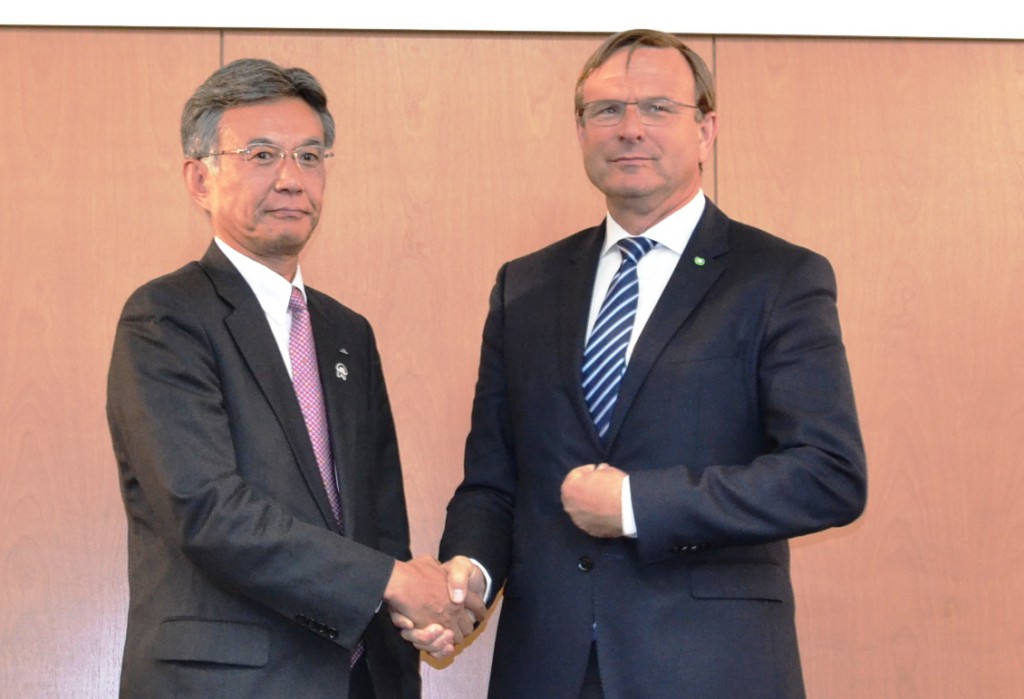The National Federation of Agricultural Co-operative Associations (JA Zen-Noh) announced on Thursday, March 27, that it has been granted an exclusive license to use ThermoSeed – a new disinfection method for grain seeds – in Japan.
JA Zen-Noh says the technology, which eradicates all kinds of diseases on seeds using hot humid air, can contribute to cutting costs and improving business conditions of rice and wheat farmers.
JA Zen-Noh Executive Director Shuji Yamazaki and Douwe Zijp, CEO of Netherlands-based INCOTEC Group which markets ThermoSeed, also announced that the two parties signed a partnership agreement to spread the technology among Japanese farmers.

JA Zen-Noh Executive Director Shuji Yamazaki (left) shakes hands with INCOTEC CEO Douwe Zijp at a press conference in Tokyo on Thursday, March 27.
JA Zen-Noh plans to ask agricultural experiment stations to conduct experiments, then implement a large-scale practical trial run in 2015 and set up disinfection devices experimentally in some prefectures in 2016 to disinfect rice and wheat seeds.
Currently, 80 percent of rice seed disinfection is conducted by using agricultural chemicals and the rest by hot water, according to JA Zen-Noh. Hot water disinfection is used for rice certified as environment-friendly, which is grown with low-nitrogen fertilizers and less chemical pesticides, but this method of disinfection has risks of causing temperature irregularities and the seeds have to be dried before being stored.
ThermoSeed does not require a drying process and makes long-term storage and long-distance transportation possible. JA Zen-Noh’s experiments showed that the new technology had roughly the same or better effects to eradicate such diseases as Bakanae disease (Gibberella fujikuroi) and Burkholderia plantarii. JA Zen-Noh hopes to replace all existing disinfection technologies with ThermoSeed in the future.
When comparing capital investment costs of setting up a ThermoSeed device and a continuous hot water disinfection device, ThermoSeed costs higher in terms of sales price with the price of roughly JPY130 million, compared with JPY110 million for hot water disinfection device. But a ThermoSeed device can disinfect 120 tons of grains a day, more than seven times as much as a hot water disinfection device. This means capital investment cost per ton of seeds when using the ThermoSeed device 50 days a year for 10 years is estimated to be about one-sixth of the cost for hot water disinfection device, according to JA Zen-Noh.
Based on the simulations, Yamazaki explained that if ThermoSeed devices are established next to wide-area seed processing facilities of agricultural cooperatives and prefectures, it will lead to integration of seed processing and help reduce farmers’ burdens and costs.
(March 28, 2014)

